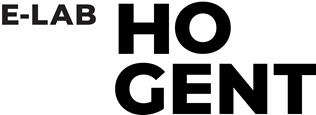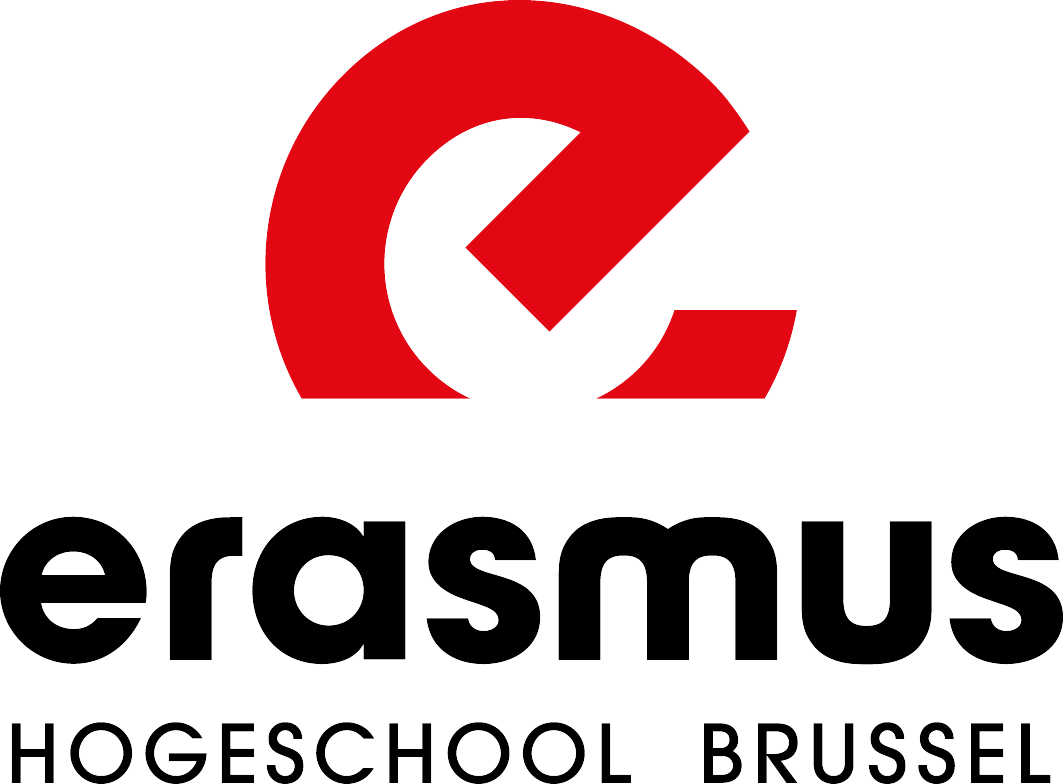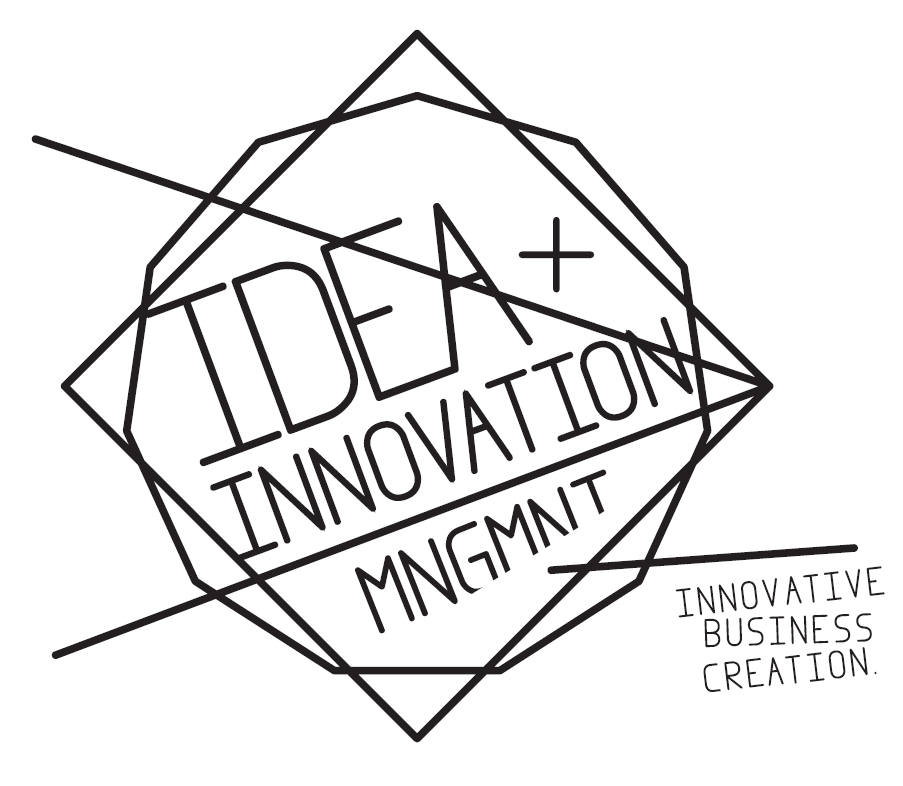'Design thinking in business and entrepreneurship' is the central theme of the international summit on 27 March 2025, that will take place at HOGENT University of Applied Sciences and Arts. This international meeting, is a collaboration between HOGENT, Amsterdam University of Applied Sciences and the Idea and Innovation Management programme at Erasmus University of Applied Sciences. We are pleased to present the programme and kindly invite you to subcribe.
08:30
Welcome with coffee
09:15 - 10:15
Keynote presentation: (Auditorium T0.081): Bernard Lahousse
Bernard Lahousse is a pioneer in food tech and gastronomy and co-founder of Foodpairing. Served as an R&D manager at several major CPG companies and collaborated with some of the world’s top chefs, such as Heston Blumenthal (UK), El Bulli (Spain), and Central (Peru). For over 15 years, Bernard worked with data in the food industry and been involved in developing innovative tools like digital twins. These technologies help companies develop new products faster and more effectively while predicting consumer preferences. At Foodpairing, Bernard is responsible for leading scientific research and guiding the strategic direction of our technologies and insights.
During his keynote, Bernard will discuss how Foodpairing helps companies accelerate innovation through the use of digital twins and artificial intelligence. I will demonstrate how we combine taste, aroma, texture, and color with consumer preferences to create successful products.
10:30 - 12:00
Parallel sessions (each 30-minute presentations + 15-minute Q&A) with best practices by lecturers.
Objectives of the parallel sessions :
- Knowledge sharing: Providing a platform for lecturers to share best practices and discover new approaches to design thinking in entrepreneurial education.
- Professional development for lecturers: Enabling lecturers to improve their skills in design thinking and entrepreneurship education, which directly benefits the quality of education at colleges.
- Networking opportunities: Creating an environment where lecturers and researchers can connect and collaborate with experts and colleagues from other institutions, fostering future partnerships.
- Impact of innovative methods: Encouraging the integration of design thinking into the curriculum, helping colleges differentiate their educational offerings and prepare students for an ever-changing business environment.
- Relevance to the academic community: Offering a high-quality seminar focusing on current trends such as design thinking in entrepreneurship, enhancing the college’s reputation as an innovative and forward-thinking institution.
Room T1.026
Postgraduate Experience Architect. Design Thinking and Service Design Education for Working Professionals.
Explore how the Postgraduate Experience Architect programme redefines design thinking and service design education for working professionals. This session delves into an educational methodology that combines experiential learning, problem-based challenges, and reflective practices. Discover how a scaffolded curriculum, real-world cases, and co-creative partnerships with industry experts cultivate learning and empower participants to drive user-centred innovation in their fields.
Room T1.026
Factors influencing the societal impact of lifelong education: a mixed-methods impact study of an academic design thinking module for professionals.
In 2022, I developed a design thinking module for working professionals, following Utrecht University’s societal mission to promote lifelong education. I facilitated this module (4 sessions from September to November) three times. With a mixed-method study (survey and interviews) I try to capture how the module impacted participants’ personal growth, innovation competences, and workplace practices – during the module and six months after.”
Room T2.033
Design Thinking for What Matters: Building Creative Confidence and Innovation Skills.
Design Thinking for What Matters: A focus on building creative confidence and innovation skills equips students with a user-centered approach to tackle complex challenges. By combining theoretical foundations with practical applications—such as empathy-driven insights, concept ideation, prototyping, and real-world client projects—students gain critical thinking skills and a deep appreciation for the power of iteration. Fostering conceptual innovation in the classroom while addressing the challenges ahead.
Room T2.033
Discover how Artificial Intelligence (AI) can become more than just a tool, evolving into a co-creative partner in design practices during the lecture Synergy of Creativity and AI in Design Processes.
This ongoing research at the School of Arts examines how innovative technologies inspire and challenge students of Interior Design and Landscape Architecture.
The study highlights, through practical examples, student experiments, and hands-on applications, how technology can push the boundaries of traditional design practices. Develop a critical understanding of AI's potential and limitations in creative processes.
Room (to be specified)
Exploring the Role of AI During Ideation: A Qualitative Study of First-Year Entrepreneurship Students.
The ongoing research uses focus groups of students enrolled in the university's entrepreneurship course to examine the impact of AI tools in shaping ideas. By comparing two cohorts, the research will be able to understand the practical implications of the tool during the ideation phase with and without the use of AI for more informed decisions on its use regarding overuse, dependency, and challenges.
Room (to be specified)
Enhancing entrepreneurial and intercultural competencies through an international hackathon: a short-Term intervention with long-term impact?
Hackathons have emerged as a powerful educational tool, fostering problem-solving, creativity, and innovation within an intensive, time-constrained format. Traditionally linked to technology development, hackathons in higher education are increasingly addressing interdisciplinary challenges that enhance both entrepreneurial and intercultural competencies.
This study examines the impact of an internationally organized hackathon between and Canadian University Dubai (CUD) and HOGENT (Belgium), with a particular focus on developing intercultural awareness and an entrepreneurial mindset among students from diverse cultural and educational backgrounds. The hackathon was structured around the design thinking methodology, guiding participants through iterative problem-solving and user-centered innovation. To evaluate the sustainability of learning gains from the hackathon, this study employs the Experience Sampling Methodology (ESM) using the LoopMe tool.
12:00 - 13:30
Lunch and networking opportunities
13:30 - 15:00
Parallel sessions (45 minutes each) with best practices by lecturers
Room T2.026
Design Thinking for What Matters: Building Creative Confidence and Innovation Skills.
Discover how generative AI can revolutionize the Double Diamond design process for thinking education, empowering students but also professionals with critical problem-solving and creative thinking skills. By integrating AI tools into project-based learning and design thinking, we can explore real-world challenges with innovative, data-driven approaches. This collaboration fosters adaptability, collaboration, and ethical awareness, preparing learners for the complexities of product design.
Room T2.026
Solving Complex Problems with Design Thinking? Yes, We Can!
This session explores into the implementation of design thinking as a transformative learning framework within higher education. We showcase the HOGENT Design Thinking Lab course, which equips students with the skills to address complex "wicked" problems. By fostering innovation, critical thinking, and entrepreneurial skills, the course aims to empower students to become effective problem-solvers in a rapidly changing world. Join us to discuss the key components, pedagogical strategies, and measurable outcomes of this innovative educational approach.
Room T2.028
VRIJPLAATS, a transformative learning environment for collaborative learning and innovation.
Vrijplaats is a transformative living lab at Artevelde University of Applied Sciences, fostering collaboration among students, researchers, and external stakeholders through design thinking and other innovative methodologies. It equips participants with skills to address complex challenges (such as Greencomp & Entrecomp), enabling them to co-create solutions (educational tools) for authentic challenges in areas like Sustainability Education, Cultural Education, STEM, and Outdoor Learning. Within our presentation, we will share key insights from our ongoing projects and discuss how our approach inspires transformative learning and fosters innovation.
Room T2.028
Transforming Higher Education: Design Thinking for Wicked Problems in Vocational Colleges
This study explores how Design Thinking can be applied in vocational education to address complex, real-world challenges, or "wicked problems." Drawing on a course for adult learners at Kristiania Vocational College, the paper highlights how Design Thinking fosters workplace-relevant innovation by integrating empathy, collaboration, and iterative problem-solving. The course employs scaffolded learning and real-world case studies to align student projects with organizational goals. Key insights include the need for flexible learning structures and stronger collaboration with organizations to ensure meaningful outcomes.
15:00 - 15:15
Coffee break
15:15 - 16:00
Reflection session and summary
A group session where participants (several colleagues) share their key insights and collectively summarize the day.
16:00 - 16:15
Closing remarks and acknowledgments
When
Thursday, March 27
9am - 5pm CET
Where
HOGENT
Campus Schoonmeersen - T building
Voskenslaan 364A
9000 Gent
Subscribe
Subscribe now!Subscribe now!



